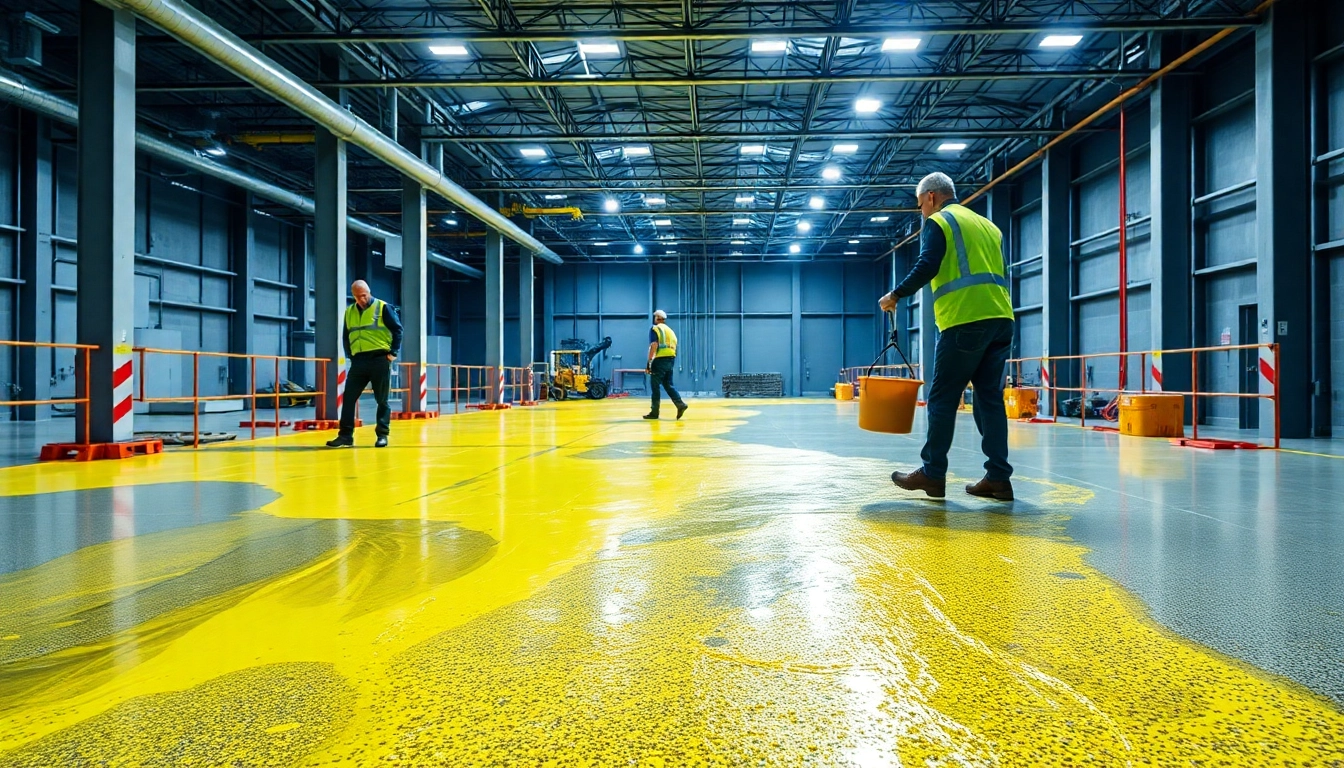Understanding Liquid Screeding and Its Benefits in Birmingham Projects
When it comes to achieving a perfectly level, durable, and efficient flooring system in both residential and commercial properties, liquid screeding has become a popular choice across Birmingham and the wider West Midlands. This modern flooring solution offers numerous advantages over traditional methods, swiftly transforming underfoot surfaces into smooth, reliable foundations for various floor coverings and underfloor heating systems. If you’re exploring options for your upcoming construction or renovation project, understanding what liquid screeding entails and why it is increasingly favored in Birmingham is essential. Liquid screeding Birmingham solutions are not only innovative but also adaptable to diverse project requirements, ensuring quality results within tight timelines.
What is liquid screeding and how does it differ from traditional methods?
Liquid screeding, also known as flow screed, is a modern, pumpable form of floor screed made from a mixture of cement, water, and fine aggregates. Unlike traditional sand and cement screed, which is manually applied in layers, liquid screed is poured directly onto prepared substrates using high-powered pumps. Its fluid consistency allows it to flow smoothly and evenly distribute across surfaces, filling in gaps and forming a remarkably flat, level finish without the need for extensive manual leveling. This process significantly reduces application time and enhances precision, making it an ideal choice for complex or large-scale flooring projects.
Traditional screeds, primarily composed of sand, cement, and possibly lime, often require extensive manual labor, multiple passes with trowels, and longer curing times to achieve the desired smoothness. In contrast, liquid screed’s self-leveling properties minimize labor intensity and lead to faster project completion. This difference is critical in Birmingham’s bustling construction scene, where time efficiency and high-quality standards are paramount.
Advantages of using liquid screeding for Birmingham home and commercial developments
- Speed of Installation: Liquid screed can be pumped and spread rapidly across large areas, enabling projects to progress swiftly. In busy Birmingham developments, this reduces overall construction timelines.
- High Level of Flatness and Smoothness: The natural flow of liquid screed results in a perfectly even surface, minimizing the need for additional levelling layers or adjustments.
- Excellent Thermal Conductivity: When integrated with underfloor heating, liquid screed ensures superior heat transfer, leading to more energy-efficient buildings.
- Compatibility with Various Floor Coverings: The smooth surface provided by liquid screed is suitable for a wide range of flooring options, from tiles and hardwood to carpet and vinyl.
- Reduced Waste and Material Use: The precision of pump application minimizes material wastage compared to traditional mixing and spreading techniques.
- Enhanced Structural Integrity: Liquid screed’s consistency provides better bonding and reduces the risk of cracks and subsidence over time.
In Birmingham’s diverse construction landscape, from high-end residential homes to commercial warehouses, these benefits translate into cost savings, higher build quality, and reduced disruption, making liquid screeding a preferred choice.
Common challenges and how liquid screeding addresses them in Birmingham settings
Despite its numerous benefits, some projects may face challenges such as moisture control, accurate application, and curing times. However, advancements in liquid screeding technology and skilled local contractors effectively mitigate these issues.
- Moisture Management: Proper surface preparation and the use of suitable curing membranes ensure that liquid screed dries uniformly, preventing cracks and ensuring longevity.
- Application Precision: Experienced Birmingham-based contractors leverage advanced pump equipment and meticulous surface assessments to guarantee uniform thickness and adherence.
- Speedy Curing: Quick-setting formulations and optimal environmental conditions enable rapid curing, facilitating faster progression to flooring installation stages.
Addressing these challenges head-on with professional input ensures that liquid screeding projects in Birmingham meet high standards for durability and performance.
Key Factors to Consider When Choosing a Liquid Screeding Contractor in Birmingham
Experience, reputation, and certifications of local providers
Selecting a reputable contractor with extensive experience in Birmingham is crucial. Look for companies with proven track records, positive client testimonials, and relevant industry certifications such as CISRS or SIP certifications. This guarantees that your project will be managed by skilled professionals adhering to current safety and quality standards.
Cost estimation, timelines, and project scope management
Obtain detailed quotes that include material costs, labor, and any ancillary services like underfloor heating integration. Clarify timelines upfront to align project phases and avoid delays. A transparent contractor will work with you to define the scope accurately, ensuring your expectations are met within budget and schedule constraints.
Ensuring quality, safety standards, and eco-friendly practices
Prioritize contractors who utilize high-quality materials compliant with UK building regulations, and follow safety protocols during installation. Additionally, choose providers committed to environmentally sustainable practices—such as recycling waste materials and selecting low-carbon cement mixes—that support Green Building standards in Birmingham.
Step-by-Step Guide to Installing Liquid Screed in Birmingham Homes
Initial assessment and site preparation
Preparation involves thorough site inspection to assess existing substrates, moisture levels, and structural stability. Surfaces should be clean, dry, and free of debris. Any cracks or imperfections require repair to ensure an even base. Environmental conditions, such as temperature and humidity, are also optimized to facilitate curing.
Application process: mixing, pouring, and smoothing techniques
Professional contractors mix the liquid screed components according to specified ratios, ensuring consistency. Pumping equipment delivers the fluid mixture onto the prepared surface, where it flows freely, filling gaps and creating a seamless layer. Skilled operatives then use trowels or automated screeding tools to smooth and level the surface further, achieving an ultra-flat finish.
Drying, curing, and finishing for optimal durability
Immediately after installation, the screed must cure adequately, which involves maintaining appropriate temperature and humidity conditions. Curing compounds or covers are often used to prevent rapid moisture loss, ensuring maximum strength development. Once fully cured, surface treatments or sealants can be applied before laying final floor finishes.
Optimizing Underfloor Heating and Flooring with Liquid Screed
Integrating underfloor heating systems in Birmingham with liquid screed
Liquid screed’s thermal conductivity makes it ideal for embedding underfloor heating pipes or cables. The fluid nature ensures even heat distribution, which enhances energy efficiency and comfort. Proper installation involves precise positioning of heating elements and pre-approved screed thicknesses to optimize heat transfer.
Choosing flooring materials compatible with liquid screed
Most common flooring types work well over liquid screed, including ceramic tiles, engineered wood, luxury vinyl, and carpeting. It’s important to ensure the chosen floor covering is compatible with the screed’s thermal properties and curing process, often requiring specialist adhesives or installation techniques.
Best practices for maintenance and longevity of screed floors
Regular inspections for cracks or surface wear help maintain integrity. Avoiding excessive moisture exposure and using appropriate protective sealants extend the lifespan of screeded floors. Proper underfloor heating operation and periodic system checks ensure sustained performance.
Performance Metrics and Industry Standards for Liquid Screeding in Birmingham
Measuring quality: compressive strength, flatness, and curing time
Key indicators of a successful liquid screed installation include achieving minimum compressive strength levels as specified in BS EN 13813 standards, attaining a high degree of flatness (F-number 3 or better), and ensuring proper curing times—generally 7 to 28 days depending on formulations—to reach optimal strength and durability.
Compliance with UK building regulations and safety codes
All projects must adhere to standards such as Part A (Structure) and Part L (Energy Conservation) of the UK Building Regulations. This includes using environmentally compliant materials and following safe installation practices to prevent hazards.
Case studies highlighting successful Birmingham projects
Recent projects across Birmingham demonstrate liquid screeding’s versatility—from luxury residential developments integrating underfloor heating to commercial warehouses benefiting from rapid, high-strength flooring. Each case highlights meticulous planning, expert execution, and final outcomes exceeding client expectations.



